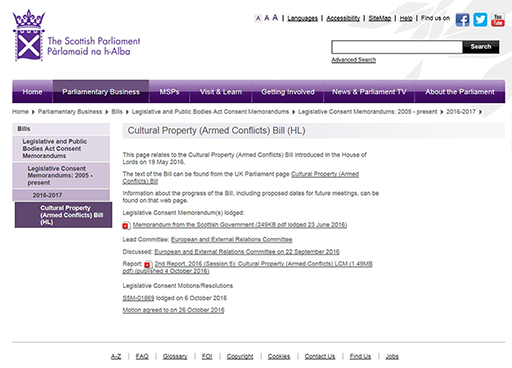5.1 Devolution Guidance Note 10
Devolution Guidance Note 10 is relevant here as this sets out guidance for UK wide government departments on the ways in which legislation affecting Scotland is managed, including how and when consultations between relevant Ministers and departments should take place. The guidance restates the principle of legislative consent and notes that the Commons Procedures Committee (UK Parliament, House of Commons) also supports the convention.
A framework for consistent working with each of the devolved administrations has also been published as a Memorandum of Understanding (MOU). This represents an agreement reached between the UK Government and the Governments of the three devolved administrations (the most recent version at the time of writing was the 2012 version) and sets out principles which underlie relations between them. The MOU is not, however, intended to be legally binding.
This principle, that the UK Parliament would not normally legislate in a devolved matter in Scotland without the agreement of the Scottish Parliament, has now been enshrined into the Scotland Act 1998 with an amendment to Section 28. The amendment was made by the Scotland Act 2016 Sections 2 and 72(7). Figure 7 shows the relevant amendment. . The amendment added a new subsection, subsection 8, to Section 29. You will explore how legislation is set out and amended in more detail in Weeks 3 and 4.
You may have noticed that the word ‘normally’ has been included in the wording of this new subsection. The meaning of ‘normally’ in this context has yet to be tested.
A complex system has emerged as two Parliaments can now make laws which affect Scotland. You will explore this in Week 7.


